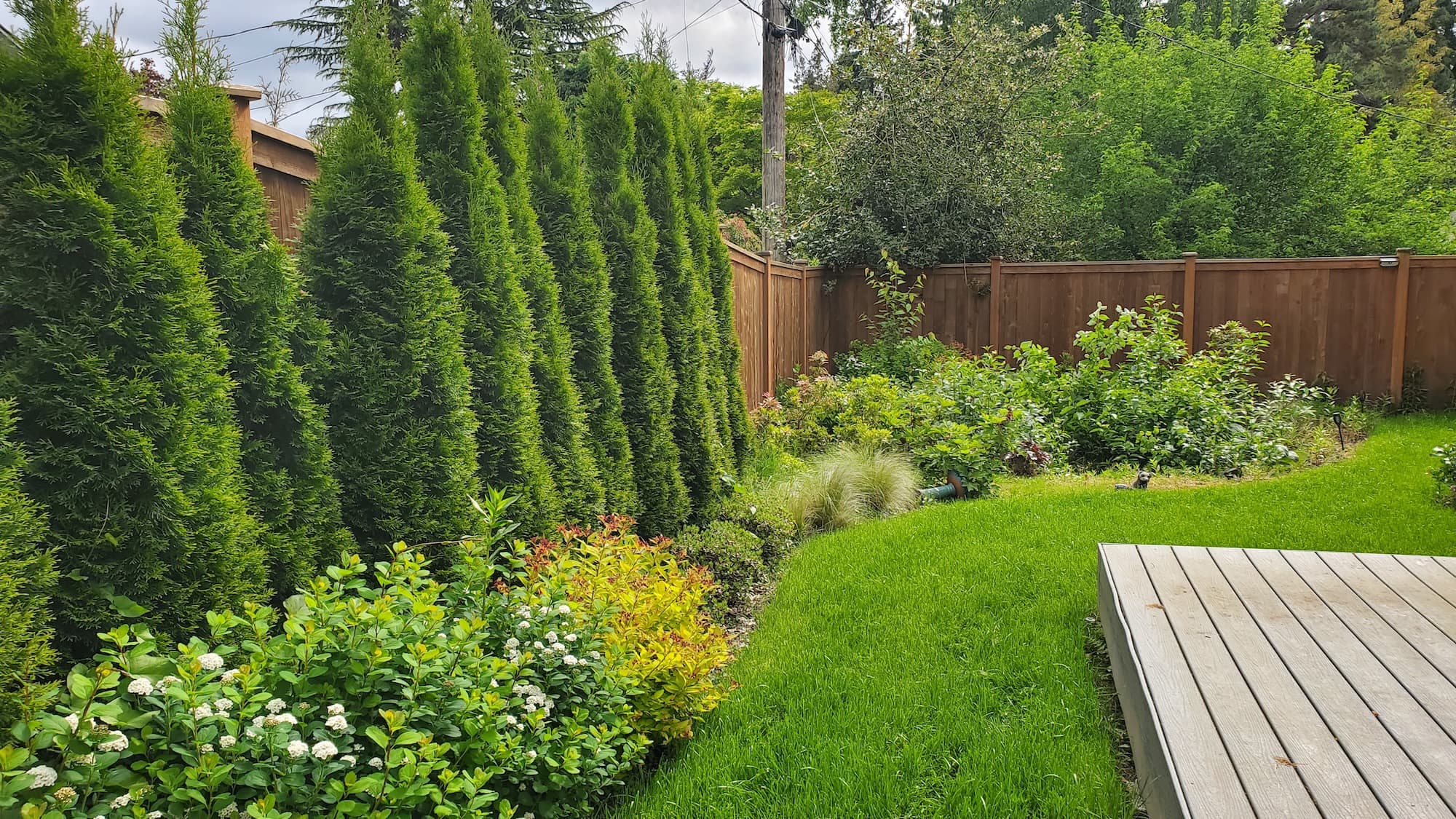West Seattle Blackberry root digging
Homeowner’s Issue
Blackberries in West Seattle thrive on our mild, wet winters and the disturbed soils around older properties and new builds. Many yards here have compacted loam mixed with glacially‑derived sand and clay; that mix drains poorly in winter and holds moisture, which encourages Himalayan and Evergreen blackberries to put down aggressive roots and spread by tip layering. South‑facing slopes near Alki and Admiral dry out quickly in summer, promoting tough, thorny canes that die back but leave a dense root mat. In low, shady spots toward Fauntleroy and Morgan Junction you’ll see moss and ivy working with blackberries to choke out natives.
Typical problems: canes overrunning paths, blocking drainage ditches, creating tripping hazards on slopes, and lowering curb appeal in HOA or sightline areas. Left alone, roots regrow from small fragments, so a quick cutback just makes a thicker tangle next year. Seattle’s seasonal rains mean timing matters: dig when soils are workable (late spring or late summer/early fall), avoid saturated winter dig-outs that cause erosion, and plan follow‑ups for new shoots. Sustainable methods — manual root excavation, smothering, and mulching — protect nearby shrubs and urban wildlife without herbicides.
Our Quality Service
We remove blackberries the old‑school way: hands-on digging, root‑by‑root extraction, and targeted follow‑ups. Crew arrives with shovels, root saws, loppers, pry bars, hand tools, and tarps for hauling. For steep or tight sites we use winches, step‑in anchors, and safety harnesses; flat yards get a half‑day to full‑day crew depending on size. Typical timeline: small patch (under 200 sq ft) — same‑day removal and tidy; medium patches (200–800 sq ft) — 1 day; large or slope jobs — 1–2 days plus return visits.
We use only sustainable methods — no herbicides. After root removal we offer mulch smothering, landscape fabric where appropriate, and native replanting suggestions (salal, sword fern, Oregon grape) to reduce recolonization. We’ll advise on Seattle composting/green‑bin options and haul away debris if you prefer.
Benefits: safer yards, improved curb appeal, reduced long‑term maintenance, and less erosion risk on West Seattle slopes.
What’s Included
- Onsite assessment and written estimate.
- Cutting back canes and hand‑digging root crowns and root masses.
- Hand raking, site tidy, and final edging.
- Disposal: haul‑away to dump or transfer to Seattle green‑bin / compost (your choice).
- Photos before/after when requested.
Options / Upgrades:
- Mulch + fabric installation to suppress regrowth.
- Organic mechanical “smother” layer (cardboard + compost + mulch).
- Native plantings and erosion control on slopes.
- Repeat visits (30/60/90‑day follow up) for resprouts.
Before & After / Expectations
Be blunt: the job gets messy and a bit noisy. Expect overturned soil, cut canes, and a cleared root zone that will look raw for a few weeks. We stabilize exposed soil with mulch or erosion matting on slopes; full recovery with planting takes a season.
Access: we need clear access to the infestation and a short hose or water source if replanting. If your site is on a steep bluff (Alki/Admiral areas), allow for extra time and safety rigging.
Care tips for West Seattle:
- Best digging windows: late spring (after soils warm) or late summer/early fall (drier surface soils).
- Watch for resprouts in spring; small shoots pull easily before they root deep.
- Reduce watering in summer slopes; overwatering encourages vigorous cane growth in shady pockets.
- Keep mulch 2–3 inches thick and away from trunks of desirable shrubs to deter weeds.
- Monitor mossy, shaded corners — they need mechanical clearing and better airflow, not herbicides.
FAQs (3–5)
Q: How long before blackberries stop coming back?
A: With complete root removal plus one or two follow‑ups in the first year you can largely suppress regrowth. Expect monitoring for 12–18 months.
Q: Do you use herbicides?
A: No. All work is mechanical, smothering, and mulching — sustainable methods only.
Q: Will removal cause erosion on a slope?
A: We stabilize exposed soil with mulch, fabric, or native plugs. For steep bluffs we install temporary erosion controls and recommend plantings that hold soil.
Q: Can you haul the green waste?
A: Yes — we’ll either load and haul to disposal or leave material in piles sized for Seattle green‑bin pickup, whichever you prefer.
Q: Do I need a permit or HOA sign‑off?
A: Usually not for backyard removal. For visible slope work or properties in conservation zones check local HOA rules; we can advise what to ask your board.
Call to Action
Ready to reclaim your yard in West Seattle? We schedule quick estimates, same‑week slots when the weather allows, and honest on‑site pricing. Local, practical work with sustainable methods and tidy results.
Email neatandtidyseattle@gmail.com to get a free quick estimate or send photos for a fast quote. Phone: 206‑538‑9344.










